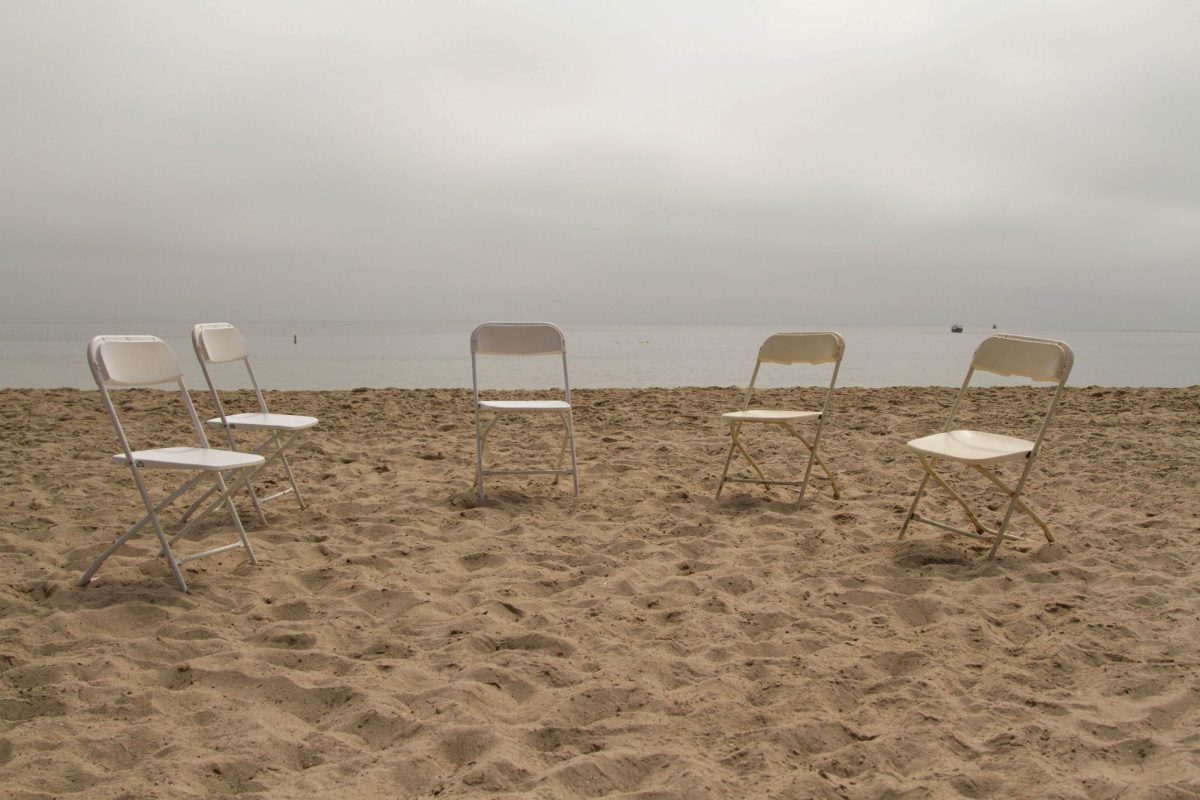Ice-cold plaster pours over the face of a student for a new makeup class at City College.
Amanda Probst, 25, is majoring in acting and directing. She is one of the first few students in Pamela Shaw’s class to experience face casting.
Amanda Probst: “I want to learn more makeup techniques, it’s kind of another thing to put on your resume. It’s a skill builder as well, since actors very often have to do their own makeup, and because it sounded really interesting and fun.”
Amanda Probst: “When it first starts pouring down your face the first thing you feel is just cold. And then you feel cold, cold, cold, and then they start pulling it back up your face. And then it’s ‘Oh my God, my face is on fire it’s so cold.’ And you start freaking out because you can’t breathe very well. Because not only is it cold so you can’t breathe, but you can only breathe through your nose; you can’t gasp for air or anything like that. It’s kind of terrifying.”
This class is being offered for the first time this semester. Each class is about a dozen students. Pamela Shaw: “We thought it might be a good idea to offer a separate class that also did not require any prerequisite, so it had to be separate enough material that it did not mean that you needed to come with a certain body of understanding before you came into the class.”
Pamela Shaw: “Also I think that every actor should have a positive face cast; because it shows their face in repose with their eyes closed, and that’s something that no one ever sees themselves as. So when you finally see yourself with your eyes completely closed, your face in repose, you don’t even recognize yourself, often.”
Given that the class is so new, the safety measures that the students must take are still being worked out.
Amanda Probst: “I was really looking forward to it, and my first experience didn’t exactly go well. We did a practice and that went fine, but then I came in that first day and we decided to use straws so I could breathe better. Suddenly there was alginate in my straw, and then in my sinuses, and my sinus started bleeding. I freaked out and they had to get all of the alginate off my face. So we waited a few minutes and we did my face cast and it turned out fine.”
After the facemask is done, the students have another challenge in taking it off.
“You scrunch up your face, and then you just wait. You’re like ‘Oh, did I just ruin everything by doing that? Why is it not releasing? Oh my God, what if I ruined everything? What if I have to- what if they have to do it again?’ and that’s about it.”






